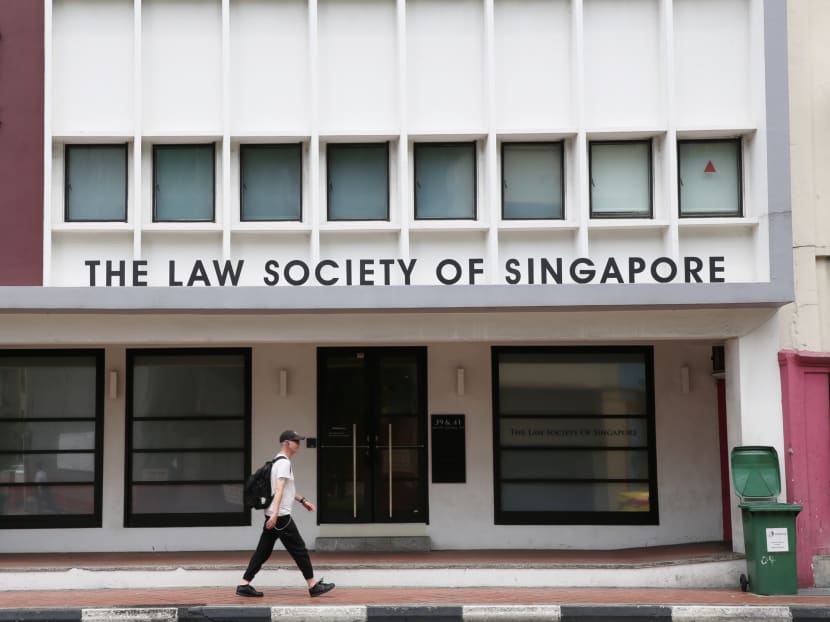Lawyers to get guidelines on questioning vulnerable persons in court
SINGAPORE – As the authorities mull over legislative changes to better protect alleged victims of sexual and child abuse offences, the Law Society (LawSoc) has drafted guidelines for legal practitioners involved in the cross examination of child witnesses, complainants and alleged victims of sexual crimes.
SINGAPORE – As the authorities mull over legislative changes to better protect alleged victims of sexual and child abuse offences, the Law Society (LawSoc) has drafted guidelines for legal practitioners involved in the cross-examination of child witnesses, complainants and alleged victims of sexual crimes.
Among other things, defence lawyers should exercise care when posing questions related to the victim’s appearance or dressing, and parts of their body – unless they can prove the questions are related to the case – and they should not cast aspersions on the victim’s character if the accused has been convicted or has pleaded guilty, according to the draft guidelines put up on LawSoc’s website.
A second set of proposed guidelines, related to the cross-examination of child witnesses, states that the language used in questioning such witnesses should be kept simple, for example, and lawyers should exercise extra care with questions suggesting that the child is lying or confused.
Responding to queries, LawSoc said it is seeking feedback from its members till Monday (Nov 13) on the two sets of draft guidelines. It will also seek the views of its relevant internal committees, and conduct a profession-wide consultation before the guide is expected to be ready next month.
The guides were intended to provide lawyers with practical tips, coupled with examples, to assist them in eliciting responses from vulnerable witnesses, said a LawSoc spokesman. “A nuanced advocacy approach is called for, sensitised to the witness’ vulnerability, in the interest of administration of justice,” he added.
In August last year, lawyer Edmund Wong of SY Wong Law Chambers was rapped by a district judge and Law Minister K Shanmugam for his “scandalous” cross-examination of a female molest victim. Mr Wong sought to argue that women sporting low-cut tops made them more likely targets of molestation. He also asked the victim to stand so as to assess her “attractiveness”.
In a separate case, Mr Pradeep Pillai from Shook Lin & Bok, who was representing convicted rapist Hossain Anowar, told the court in July this year that his client “never planned to carry out the rape”, but was “aroused by the victim’s attire”. The argument was shot down by the prosecution.
In the LawSoc’s draft guides which were seen by TODAY, lawyers are urged to approach alleged victims of sexual offences “cautiously and thoughtfully”, and refrain from asking indecent and scandalous questions unless they are related to the facts in the case. “An aggressive line of questioning may be counterproductive for counsel because it risks causing distress to the alleged victim in the courtroom... and such questions may appear to objectify the victim, thereby undermining the high standards of professional conduct expected of the Singapore Bar,” the guidelines said.
In July, the Ministry of Law launched a one-month public consultation on proposed changes to the Criminal Procedure Code and Evidence Act. Among other things, alleged victims of sexual and child abuse offences will be better shielded from the trauma of criminal proceedings, such as being allowed to testify behind closed doors. Physical screens will be put up in the courtroom so they do not have to face their alleged tormentors in cases “where the court finds that their evidence will be affected by fear or distress”. The screens will “shield the victim from the accused”, while allowing the defence lawyers, prosecutors and judges to observe the victim when he or she testifies.
Lawyers will also be barred from dredging up or posing questions about the victims’ sexual history and appearance. If they still want to do so, they will have to apply to the court for permission.
COMMONSENSICAL, BUT HELPFUL: LAWYERS
When it comes to cross-examining child witnesses, the guidelines noted that this is “probably the most challenging courtroom situation a criminal defence lawyer will encounter”.
Some good practices include referring to child witnesses by their first name instead of “witness”, for instance. Lawyers should also be cautious about the way they ask questions. For example, instead of asking “John didn’t touch you, did he?”, they could ask “Did John really touch you?”
Lawyers can also use aids during questioning, such as using a body map, diagram or “pre-cut gender-neutral ‘gingerbread people’” as well as small furniture like those in doll houses to clarify locations.
Speaking to TODAY, criminal lawyer Eugene Thuraisingam noted that the guidelines were different from existing rules governing the legal profession, which tend to be couched in broader terms and cover a wider range of issues. Lawyers who flout the Act may be struck off the roll or suspended from practice. The LawSoc spokesman reiterated that the aim was to provide guidance of best practices, and not to supplement the Legal Profession (Professional Conduct) Rules.
Criminal lawyer Sunil Sudheesan said the guidelines would be useful for younger lawyers. While some of the suggestions were “commonsensical”, Mr Sudheesan noted that cross-examination of victims of sexual offences can be a minefield for defence lawyers to navigate. “It has always been an area that is quite tricky... All decent defence counsel are sensitive to the nature of allegations but you still need to do your job,” said Mr Sudheesan, who is also the President of the Association of Criminal Lawyers of Singapore. While the guides could clarify some grey areas, they should also not fetter defence lawyers’ ability to cross-examine witnesses, he added.










